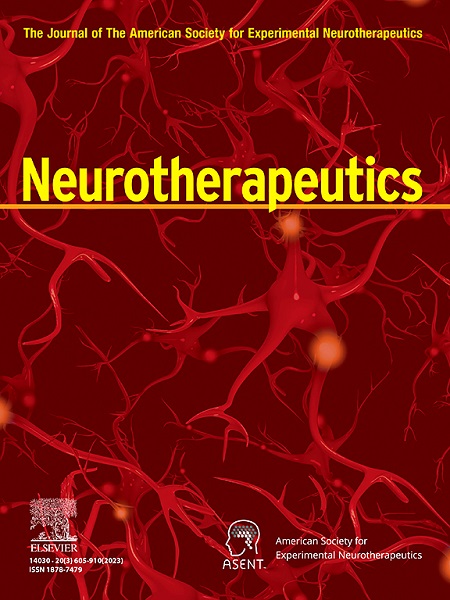Life history of a brain autoreactive T cell: From thymus through intestine to blood-brain barrier and brain lesion
IF 5.6
2区 医学
Q1 CLINICAL NEUROLOGY
引用次数: 0
Abstract
Brain antigen-specific autoreactive T cells seem to play a key role in inducing inflammation in the central nervous system (CNS), a characteristic feature of human multiple sclerosis (MS). These T cells are generated within the thymus, where they escape negative selection and become integrated into the peripheral immune repertoire of immune cells. Typically, these autoreactive T cells rest in the periphery without attacking the CNS. When autoimmune T cells enter gut-associated lymphatic tissue (GALT), they may be stimulated by the microbiota and its metabolites. After activation, the cells migrate into the CNS through the blood‒brain barrier, become reactivated upon interacting with local antigen-presenting cells, and induce inflammatory lesions within the brain parenchyma. This review describes how microbiota influence autoreactive T cells during their life, starting in the thymus, migrating through the periphery and inducing inflammation in their target organ, the CNS.
脑自反应 T 细胞的生命史:从胸腺到肠道,再到血脑屏障和脑损伤。
脑抗原特异性自反应 T 细胞似乎在诱发中枢神经系统(CNS)炎症中发挥着关键作用,这是人类多发性硬化症(MS)的一个特征。这些 T 细胞在胸腺中产生,它们在胸腺中逃脱了负选择,并融入了外周免疫细胞的免疫程序组中。通常情况下,这些自身反应性 T 细胞停留在外周,不会攻击中枢神经系统。当自身免疫 T 细胞进入肠道相关淋巴组织(GALT)时,可能会受到微生物群及其代谢产物的刺激。激活后,这些细胞通过血脑屏障迁移到中枢神经系统,与当地抗原递呈细胞相互作用后重新激活,并诱发脑实质内的炎症病变。这篇综述描述了微生物群如何在自反应 T 细胞的一生中对其产生影响,从胸腺开始,迁移到外周,并在其目标器官--中枢神经系统中诱发炎症。
本文章由计算机程序翻译,如有差异,请以英文原文为准。
求助全文
约1分钟内获得全文
求助全文
来源期刊

Neurotherapeutics
医学-神经科学
CiteScore
11.00
自引率
3.50%
发文量
154
审稿时长
6-12 weeks
期刊介绍:
Neurotherapeutics® is the journal of the American Society for Experimental Neurotherapeutics (ASENT). Each issue provides critical reviews of an important topic relating to the treatment of neurological disorders written by international authorities.
The Journal also publishes original research articles in translational neuroscience including descriptions of cutting edge therapies that cross disciplinary lines and represent important contributions to neurotherapeutics for medical practitioners and other researchers in the field.
Neurotherapeutics ® delivers a multidisciplinary perspective on the frontiers of translational neuroscience, provides perspectives on current research and practice, and covers social and ethical as well as scientific issues.
 求助内容:
求助内容: 应助结果提醒方式:
应助结果提醒方式:


